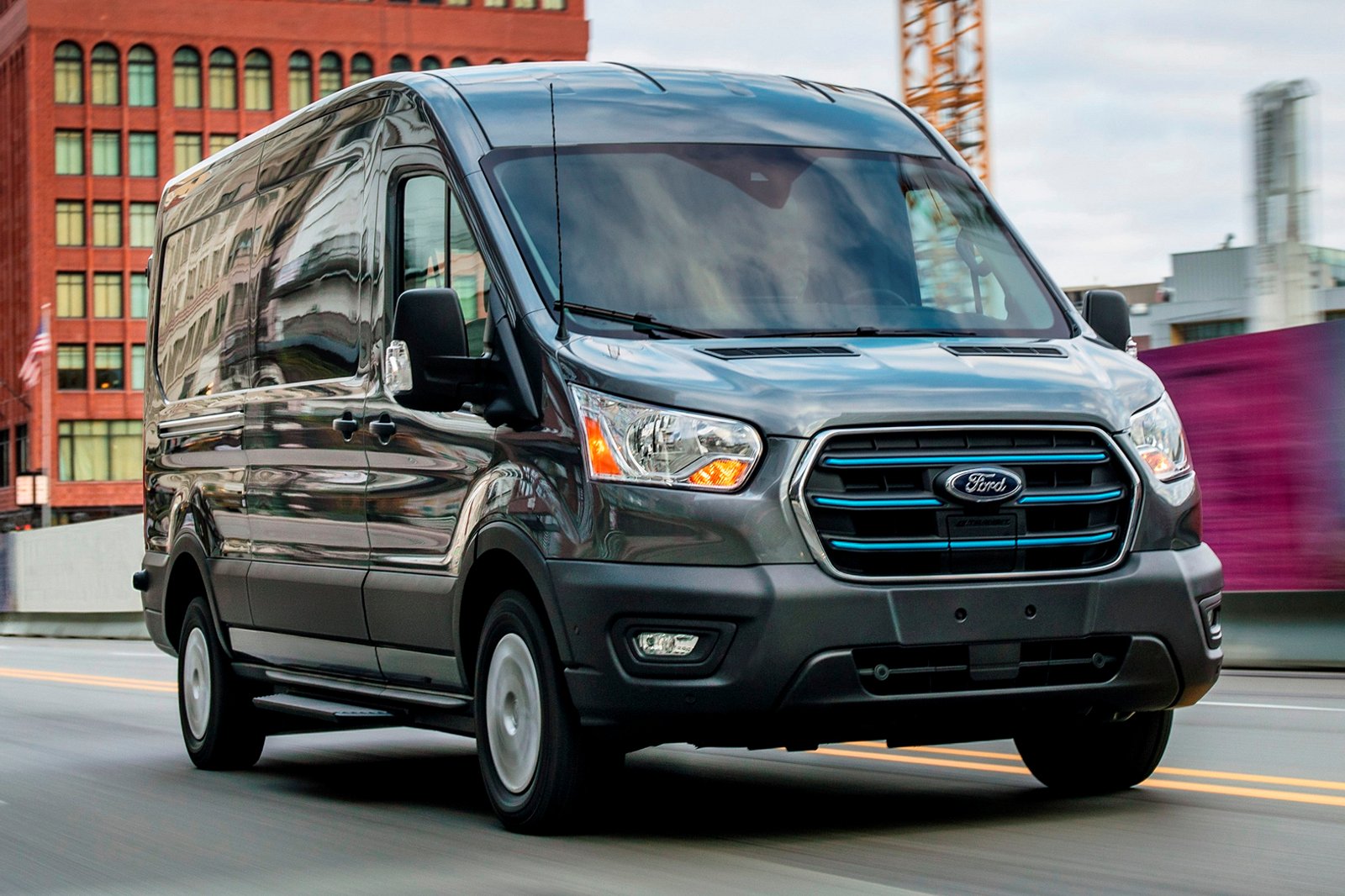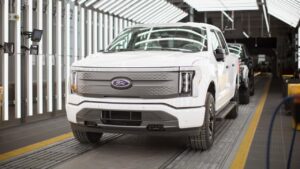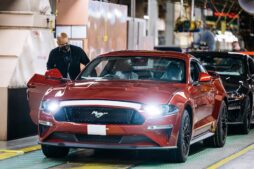3rd Qtr Challenges for Blue Oval & Electric Sales
Ford revealed that they are going to reduce their electric vehicle expenditures after a troublesome third quarter, leading to ultimate losses of $36,000 for each EV they sold.
In its most recent financial statement, Ford acknowledged that its Model e division – which is devoted to electric cars and upcoming mobility – incurred losses of $1.3 billion between July and September 2023. The carmaker stated that this sizable deficit can be attributed to “ongoing investment in forthcoming EVs and difficult market conditions.”
The 3rd quarter observed a noteworthy expansion in the sale of electric vehicles, reaching 20,962 units. There was a noticeable 42.5% boost in Mustang Mach-E sales, making the total reach 14,824. On the other hand, the F-150 Lightning didn’t fare well, and Ford reduced its production for this model – though the company attributed other explanations for taking such action.
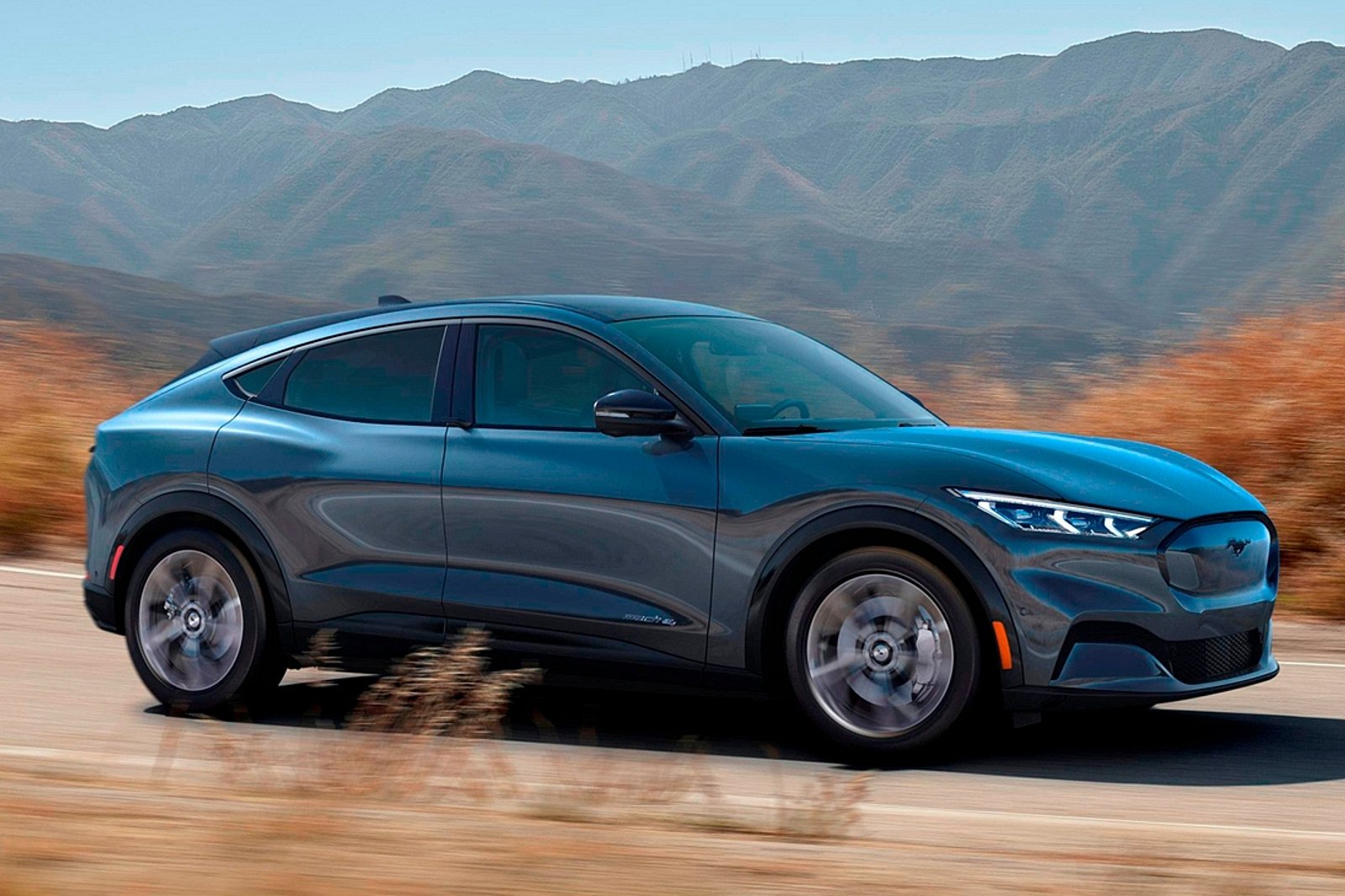
“Ford is able to adjust the production of gas, hybrid, and electric vehicles to keep up with the rate of EV adoption in a way that its competitors cannot. This is an advantage for customers, who get the products they desire, and Ford itself, as it is able to maximize profitability and cash flow through prudent capital allocation rather than pursuing large-scale expansion at any cost,” said John Lawler, CFO of Ford.
It’s been a trying period for Ford, who have had difficulty keeping up with Tesla’s dramatic price cuts. In an effort to stay competitive, the carmaker lowered the cost of the Mustang Mach-E and ramped up production. Despite these MSRP reductions, the company noted that “Many North American customers interested in buying EVs are unwilling to pay premiums for them over gas or hybrid vehicles.” This suggests that further action may be needed to convince the buying public.
Many mainstream brands, such as Chevrolet and Honda, are also finding it difficult to market EVs.Not simply Ford is encountering hardships in the sale of its freshly produced electric cars. Numerous mainstream makers, for instance, Chevrolet and Honda, are also compelled to wrestle with difficulties in publicizing their EV items.
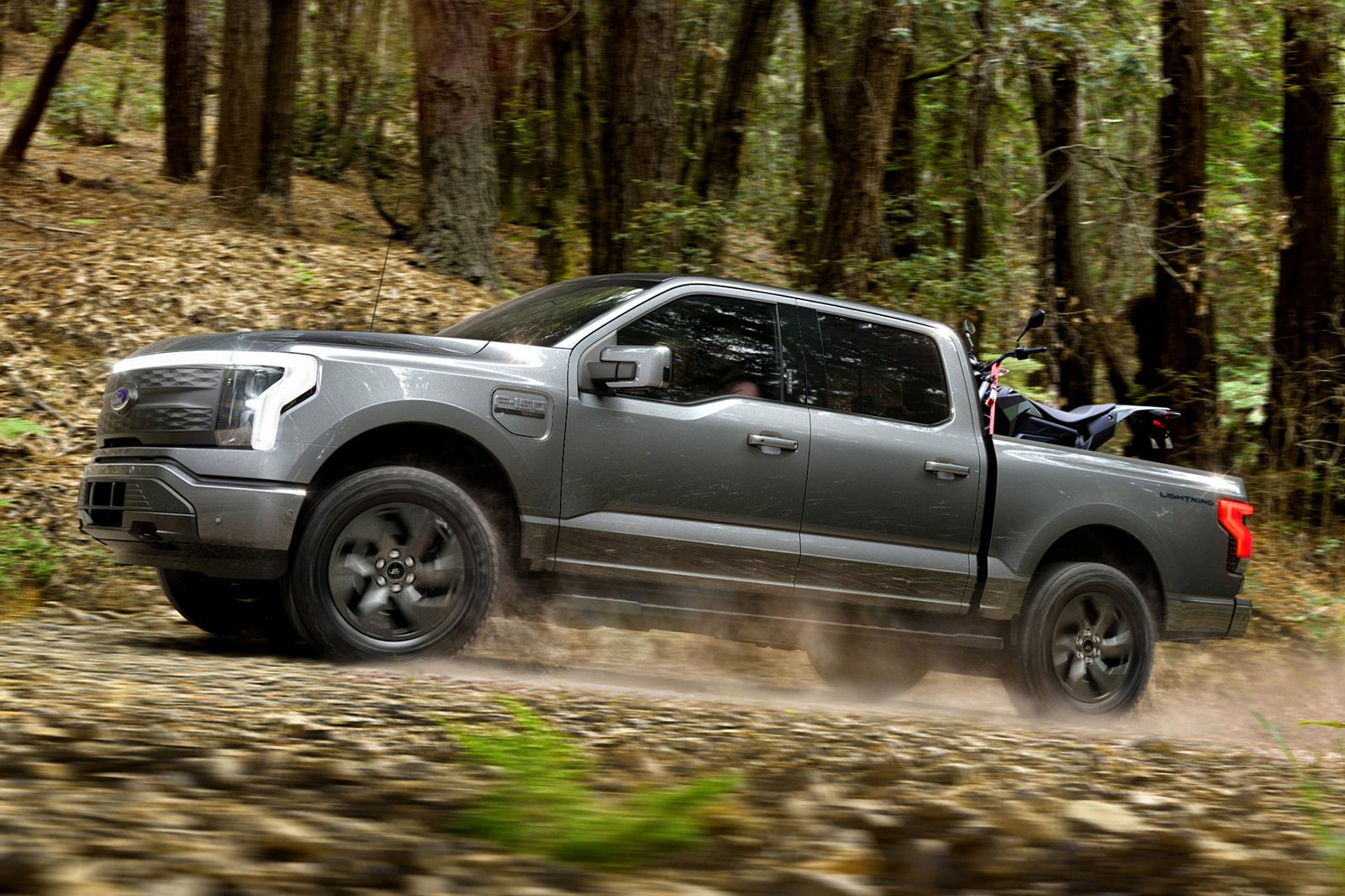
Despite the slower growth rate, Lawler is still convinced that the electric vehicle segment is not stagnating. “The narrative has taken over that EVs aren’t growing; they’re growing,” he stated in the earnings call, according to Automotive News. He went on to explain that the growth rate of electric vehicles is slower than what was initially expected by the industry.
While there will be investment delays, the automaker has clarified that it will not cancel its line of second-generation electric vehicles, which includes a pickup truck and a three-row family vehicle. However, there’s no word yet on how long the company will delay these investments. According to the automaker’s CEO, Jim Lawler, “As demand has softened, we’ll need less capacity in the near term, so we’ll push out that investment until the time when we need to put that capacity in place.” He went on to explain that the company is committed to launching its line of second-generation electric vehicles, but the timeline for the investments has been pushed back for the moment.
Just last week, a compact was arrived at between Ford and the United Auto Workers, which will give rise to an elevation of 25%, occurring across a period of 4 1/2 years.
